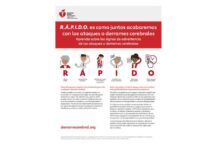Our sense of taste is crucial for our overall health and well-being. It plays a significant role in helping us make food choices and avoid consuming harmful substances. The experience of tasting and eating is not just a physical sensation but also a social and personal one, creating joyful memories and shared moments with loved ones.
It is estimated that over 200,000 individuals seek medical help each year due to taste or smell-related issues. However, this number is believed to be much higher, as many people experiencing taste disorders do not seek treatment. Interestingly, most individuals who report a loss of taste actually have a smell disorder instead.
Taste and smell are closely intertwined senses. When we chew food, aromas are released that travel from the roof of the throat to the nose, enhancing our perception of taste. If this pathway is blocked, such as during nasal congestion, our ability to taste food is compromised, leading to a dull flavor experience.
Contrary to popular belief, taste cells responsible for detecting different taste qualities are not limited to specific regions of the tongue. Instead, they are distributed throughout the tongue and mouth. Taste is triggered by minuscule molecules released during eating, drinking, or digestion, which stimulate taste cells in the mouth and throat. Taste buds on the tongue, roof of the mouth, and throat lining contain clusters of these cells.
Flavor encompasses various elements, including temperature, texture, and the five taste qualities: sweet, sour, bitter, salty, and umami. Umami, also known as savory, is derived from glutamate found in foods like meat, cheeses, and chicken broth. Individuals who lose their sense of taste may struggle with seasoning their food properly, which can be problematic for those managing health conditions like heart disease or diabetes.
Some common taste disorders include hypogeusia (reduced taste sensitivity), ageusia (complete loss of taste), phantom taste perception (lingering taste sensation without cause), and dysgeusia (unpleasant taste perception). These disorders can arise from various factors such as infections, poor oral hygiene, dry mouth, medications, and smoking.
Diagnosing taste disorders typically involves a consultation with an otolaryngologist, also known as an ear, nose, and throat specialist. The healthcare provider will conduct a thorough examination of the ears, nose, and throat, along with a review of the patient’s medical history. In some cases, a dental evaluation may also be recommended to assess oral health.
Treatment for taste disorders often involves addressing the underlying medical condition. Improving oral hygiene, managing infections, and adjusting medications can help restore taste sensitivity. Additionally, modifying food preparation techniques by incorporating diverse flavors and textures can enhance the eating experience for individuals with taste disorders.
In cases where taste disorders cannot be reversed, counseling may be beneficial in helping individuals cope with the condition. It is essential to seek professional medical advice and not discontinue medications without consulting a healthcare provider. By understanding the complexities of taste and smell, we can appreciate the significance of these senses in our daily lives and overall well-being.

















